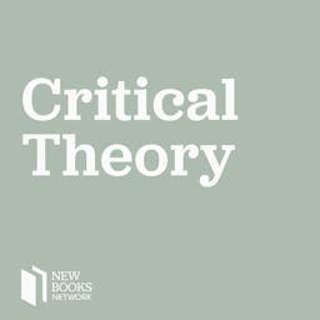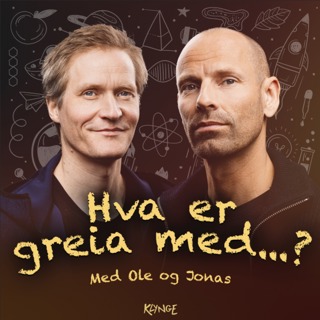
Renay Richardson and Arisa Loomba, "Human Resources: Slavery and the Making of Modern Britain" (Profile Books, 2025)
Ordinary items take on new meanings when you cast them in different light. The origins of tea, coffee and sugar are well known, but when you discover that gym treadmills were pioneered on plantations or that denim jeans were once clothing for enslaved people, you can't help but ask where else the legacy of slavery hides in plain sight. Through the stories of thirty-nine everyday places and objects, in Human Resources: Slavery and the Making of Modern Britain – in 39 Institutions, People, Places and Things (Profile, 2025) Renay Richardson and Arisa Loomba unpick the threads of the history that we never learned in school, revealing the truth of how Britain's present is bound to a darker past. Taking us from art galleries to football stands, banks to hospitals, from grand country houses to the backs of our kitchen cupboards, Human Resources is an eye-opening inquiry that gives a voice to the enslaved people who built modern Britain. This interview was conducted by Dr. Miranda Melcher whose book focuses on post-conflict military integration, understanding treaty negotiation and implementation in civil war contexts, with qualitative analysis of the Angolan and Mozambican civil wars. You can find Miranda’s interviews on New Books with Miranda Melcher, wherever you get your podcasts. Learn more about your ad choices. Visit megaphone.fm/adchoices Support our show by becoming a premium member! https://newbooksnetwork.supportingcast.fm/critical-theory
15 Jul 1h 3min

Elizabeth Popp Berman, "Thinking like an Economist: How Efficiency Replaced Equality in U.S. Public Policy" (Princeton UP, 2022)
For decades, Democratic politicians have frustrated progressives by tinkering around the margins of policy while shying away from truly ambitious change. What happened to bold political vision on the left, and what shrunk the very horizons of possibility? In Thinking like an Economist, Elizabeth Popp Berman tells the story of how a distinctive way of thinking—an “economic style of reasoning”—became dominant in Washington between the 1960s and the 1980s and how it continues to dramatically narrow debates over public policy today. Introduced by liberal technocrats who hoped to improve government, this way of thinking was grounded in economics but also transformed law and policy. At its core was an economic understanding of efficiency, and its advocates often found themselves allied with Republicans and in conflict with liberal Democrats who argued for rights, equality, and limits on corporate power. By the Carter administration, economic reasoning had spread throughout government policy and laws affecting poverty, healthcare, antitrust, transportation, and the environment. Fearing waste and overspending, liberals reined in their ambitions for decades to come, even as Reagan and his Republican successors argued for economic efficiency only when it helped their own goals.A compelling account that illuminates what brought American politics to its current state, Thinking like an Economist also offers critical lessons for the future. With the political left resurgent today, Democrats seem poised to break with the past—but doing so will require abandoning the shibboleth of economic efficiency and successfully advocating new ways of thinking about policy. Elizabeth Popp Berman is Director and Richard H. Price Professor of Organizational Studies at the University of Michigan and the author of Creating the Market University: How Academic Science Became an Economic Engine (Princeton). Morteza Hajizadeh is a Ph.D. graduate in English from the University of Auckland in New Zealand. His research interests are Cultural Studies; Critical Theory; Environmental History; Medieval (Intellectual) History; Gothic Studies; 18th and 19th Century British Literature. YouTube channel. Twitter. Learn more about your ad choices. Visit megaphone.fm/adchoices Support our show by becoming a premium member! https://newbooksnetwork.supportingcast.fm/critical-theory
14 Jul 50min

On Bullshit in Politics
Today we’re continuing our series on philosopher Harry Frankfurt’s seminal work, On Bullshit. Our guest is Michael Patrick Lynch, Provost Professor of the Humanities and Board of Trustees Distinguished Professor of Philosophy at the University of Connecticut. Michael is the author of the recently published book, On Truth in Politics: Why Democracy Demands It (Princeton University Press, 2025). The topic of our discussion today will be on bullshit in politics, and how we might think about ways to combat it. Caleb Zakarin is editor of the New Books Network. Learn more about your ad choices. Visit megaphone.fm/adchoices Support our show by becoming a premium member! https://newbooksnetwork.supportingcast.fm/critical-theory
12 Jul 33min

Carl Rhodes, "Stinking Rich: The Four Myths of the Good Billionaire" (Policy Press, 2025)
Billionaires are an ultra-elite social class whose numbers are growing alongside their obscene wealth while others struggle, suffer or even die. They represent a scourge of economic inequality, but how do they get away with it? A set of dangerous and deceptive inter-connected myths portrays them as a ‘force for good’: -the ‘heroic billionaire’ asserts they are gallant protagonists of the American Dream gone global -the ‘generous billionaire’ pretends that their philanthropic efforts and personal good deeds should be lauded for generosity and benevolence -the ‘meritorious billionaire’ insists that extreme wealth is a worthy reward for individual hard work and talent -the ‘vigilante billionaire’ claims to be able to solve the world’s biggest problems where bureaucrats and politicians have failed. Each of these myths enables billionaire wealth and power to set us back to old-style feudalism and plutocracy. Offering a trenchant critique, Stinking Rich: The Four Myths of the Good Billionaire (Policy Press, 2025)testifies to the growing international political will to take concrete actions in supporting economic justice and democratic equality. Carl Rhodes is Professor of Organization Studies at the University of Technology Sydney. He researches the ethical and democratic dimensions of business and work. Carl regularly writes for the mainstream and independent press on issues related to ethics, politics and the economy. Morteza Hajizadeh is a Ph.D. graduate in English from the University of Auckland in New Zealand. His research interests are Cultural Studies; Critical Theory; Environmental History; Medieval (Intellectual) History; Gothic Studies; 18th and 19th Century British Literature. YouTube channel. Twitter. Learn more about your ad choices. Visit megaphone.fm/adchoices Support our show by becoming a premium member! https://newbooksnetwork.supportingcast.fm/critical-theory
11 Jul 53min

Noëlle McAfee, "Fear of Breakdown: Psychoanalysis and Politics" (Columbia UP, 2019)
In his classic essay on the fear of breakdown, Donald Winnicott famously conveys to a patient that the disaster powerfully feared has, in fact, already happened. Taking her cue from Winnicott, Noëlle McAfee’s Fear of Breakdown: Psychoanalysis and Politics (Columbia University Press, 2019), explores the implications of breakdown fears for the practice of democracy. Democracy, as you may dimly recall, demands the capacity to bear difference, tolerate loss, and to speak into the unknown. Meanwhile we have come to live in a world where, if my clinical practice and personal life are any indication, people often prefer writing to speaking. Patients who want to make a schedule change--never a neutral event in psychoanalysis—write me. I say, addressing the resistance, “This is a talking cure. Get your money’s worth. Speak!” Among intimates, bad news is something I too often read about. I surmise that in speaking desire or conveying pain, a fantasized recipient is sought, an ideal listener, who, like a blow up doll lover can be invoked, controlled and then deflated at will. Circling back to difference and loss, ideas that do not mirror our already existing thoughts find themselves batted out of the park to an elsewhere not worth enunciating. Cultivating a protective bubble—such a heartbreak right? It seems there is something about democracy that frightens the shit out of us. Deploying the work of Winnicott, Klein, Green and Kristeva, Mcafee reminds us of our original loss—what she calls “plenum”. That loss, to the degree it is recognized, initiates our undoing. Mother’s other—be it her lover, her piano lessons, a visit to the dentist for a cavity—tears a hole in our emotional shield. In her wake, we cling to seemingly strong leaders, a father, or failing that potent ideologies reeking of misogyny, all the while hoping for compensation for an unfathomable loss. Embedded within democracy lies the demand that we see other than ourselves. This demand challenges the thin-skinned among us. And all of us are thin-skinned from time to time. How to manage? Mcafee adds her voice to the popular chorus of those practicing applied psychoanalysis and suggests we embrace mourning. It is an inarguable position yet also nice work if you can get it! Of course, with the original disaster elided, like sleepwalkers in our night fog, we will helplessly seek it out; worse, we will make it manifest, with a vengeance. What is not remembered gets repeated. Trapped in America, as I am, one wonders about democracy. What might lure us to revisit the sight of the disaster, “the thing itself’,” to quote Adrienne Rich, “and not the myth?” Learn more about your ad choices. Visit megaphone.fm/adchoices Support our show by becoming a premium member! https://newbooksnetwork.supportingcast.fm/critical-theory
11 Jul 57min

Robert G. Morrison, "Merchants of Knowledge: Intellectual Exchange in the Ottoman Empire and Renaissance Europe" (Stanford UP, 2025)
Between 1450 and 1550, a remarkable century of intellectual exchange developed across the Eastern Mediterranean. As Renaissance Europe depended on knowledge from the Ottoman Empire, and the courts of Mehmed the Conqueror and Bayezid II greatly benefitted from knowledge coming out of Europe, merchants of knowledge—multilingual and transregional Jewish scholars—became an important bridge among the powers. With this book, Robert Morrison is the first to track the network of scholars who mediated exchanges in astronomy, astrology, Qabbalah, and philosophy. Their books, manuscripts, and acts of translation all held economic value, thus commercial and intellectual exchange commingled—knowledge became transactional as these merchants exchanged texts for more intellectual material and social capital. While parallels between medieval Islamic astronomy and the famous heliocentric arrangement posited by Copernicus are already known, Morrison reveals far deeper networks of intellectual exchange that extended well beyond theoretical astronomy and shows how religion, science, and philosophy, areas that will eventually develop into separate fields, were once interwoven. The Renaissance portrayed in Merchants of Knowledge: Intellectual Exchange in the Ottoman Empire and Renaissance Europe (Stanford UP, 2025) is not, from the perspective of the Ottoman Muslim contacts of the Jewish merchants of knowledge, hegemonic. It's a Renaissance permeated by diversity, the cultural and political implications of which the West is only now waking up to. Robert G. Morrison is a professor at Bowdoin College. He is the author of The Light of the World: Astronomy in al-Andalus (2016). Morteza Hajizadeh is a Ph.D. graduate in English from the University of Auckland in New Zealand. His research interests are Cultural Studies; Critical Theory; Environmental History; Medieval (Intellectual) History; Gothic Studies; 18th and 19th Century British Literature. YouTube Channel: https://www.youtube.com/user/a48266/videos Learn more about your ad choices. Visit megaphone.fm/adchoices Support our show by becoming a premium member! https://newbooksnetwork.supportingcast.fm/critical-theory
10 Jul 58min

Jyotsna G. Singh, "Shakespeare and Postcolonial Theory" (Bloomsbury, 2019)
My guest today is Jyotsna Singh, Professor Emerita of English at Michigan State University. She has written numerous books including Colonial Narratives/Cultural Dialogues: “Discovery” of India in the Language of Colonialism (Routledge), and The Weyward Sisters: Shakespeare and Feminist Politics (Blackwell), which is co-authored with Dympna Callaghan and Lorraine Helms. She has also edited A Companion to the Global Renaissance: Literature and Culture in the Era of Expansion, 1500-1700 (Wiley-Blackwell), which has gone through two editions. She was among a handful of early scholars who illuminated Shakespeare’s works within non-western, non-canonical contexts. One such example is her early essay about Shakespeare in India, “Different Shakespeares,” originally published in Theatre Journal in 1989, and then expanded on and reprinted in Colonial Narratives/Cultural Dialogues. Shakespeare and Postcolonial Theory (Bloomsbury, 2019) tells the story of the academic study of the cultural legacy of European colonialism, showing how the literature of former colonial powers represented and often distorted colonial history and how, in turn, colonized peoples articulated and reclaimed their identity and history by interrogating European culture and history. Singh’s book shows how our reading of Shakespeare’s plays such as ‘The Tempest,’ ‘Hamlet,’ and ‘Othello’ has been forever changed by theater practitioners and scholars alike, while making a a persuasive case that postcoloniality continues to have a unique, still-unfolding relevance on how we read. In part, Singh’s book also memorializes the struggle of scholars for legitimacy within a sometimes-hostile field. Author of the article on The Tempest mentioned at around 35:40 is as follows: Leininger, Lorie Jerrell. "The Miranda trap: Sexism and racism in Shakespeare's The Tempest." The Tempest. Routledge, 2013. 223-230 (first published in 1980). Learn more about your ad choices. Visit megaphone.fm/adchoices Support our show by becoming a premium member! https://newbooksnetwork.supportingcast.fm/critical-theory
9 Jul 1h 12min

Myles Lennon, "Subjects of the Sun: Solar Energy in the Shadows of Racial Capitalism" (Duke UP, 2025)
In the face of accelerating climate change, anticapitalist environmental justice activists and elite tech corporations increasingly see eye to eye. Both envision solar-powered futures where renewable energy redresses gentrification, systemic racism, and underemployment. However, as Myles Lennon argues in Subjects of the Sun: Solar Energy in the Shadows of Racial Capitalism (Duke University Press, 2025), solar power is no less likely to exploit marginalized communities than dirtier forms of energy. Drawing from ethnographic research on clean energy corporations and community solar campaigns in New York City, Lennon argues that both groups overlook solar’s extractive underside because they primarily experience energy from the sun in the virtual world of the cloud. He shows how the material properties of solar technology—its shiny surfaces, decentralized spatiality, and modularity—work closely with images, digital platforms, and quantitative graphics to shape utopic visions in which renewable energy can eradicate the constitutive tensions of racial capitalism. As a corrective to this virtual world, Lennon calls for an equitable energy transition that centers the senses and sensibilities neglected by screenwork: one’s haptic care for their local environment; the full-bodied feel of infrastructural labor; and the sublime affect of the sun. Myles Lennon is Dean's Assistant Professor of Environment and Society and Anthropology at Brown University. Alec Fiorini is a PhD student at Queen Mary University London's Centre for Labour, Sustainability and Global Production (CLaSP). Learn more about your ad choices. Visit megaphone.fm/adchoices Support our show by becoming a premium member! https://newbooksnetwork.supportingcast.fm/critical-theory
8 Jul 1h 6min





















